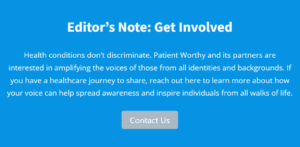PTC Therapeutics announced that the US Food and Drug Administration (FDA) issued a Complete Response Letter (CRL) regarding the company’s New Drug Application (NDA) for vatiquinone, an investigational therapy intended to treat Friedreich ataxia (FA). This correspondence reported by PharmaExec.com, marks a significant development in the regulatory journey of vatiquinone, a potential first-in-class treatment for a rare and progressive neuromuscular disorder.
Friedreich ataxia is a debilitating, inherited condition characterized by progressive loss of coordination, muscle weakness, and cardiac complications. With no approved disease-modifying therapies currently available in the US, patients and their families have been closely watching the progress of any promising new treatments. Vatiquinone, a small molecule with a novel mechanism of action, has been under investigation for its potential to slow disease progression in children and young adults with FA.
The FDA’s Complete Response Letter does not grant approval to vatiquinone at this time. Instead, the agency has requested additional evidence to further demonstrate the drug’s efficacy and benefit-risk profile. According to PTC Therapeutics, the CRL primarily points to the need for more robust clinical data from controlled studies. While the company had submitted data from a pivotal Phase II trial (MOVE-FA), which showed positive trends in some clinical endpoints, the FDA concluded that the evidence was not sufficient to support approval. Specifically, the agency highlighted the need for further efficacy data and suggested that results from an additional, well-controlled clinical trial would be necessary.
PTC Therapeutics expressed disappointment but reaffirmed their commitment to advancing vatiquinone for patients with Friedreich ataxia. The company plans to engage with the FDA to better understand the specific requirements and next steps needed to address the agency’s concerns. In the meantime, vatiquinone remains available to eligible patients through expanded access programs, ensuring continued treatment for those already receiving the drug.
The CRL does not raise new safety concerns regarding vatiquinone, which is an encouraging signal for patients and caregivers who have been following its development. The company also emphasized ongoing conversations with regulatory agencies outside the US, as they pursue approvals in other regions. This multi-pronged approach underscores PTC’s determination to bring new treatment options to the FA community.
For patients, families, and clinicians, the FDA’s decision is a reminder of the high standards required for drug approval, especially for rare diseases where patient populations are small and clinical trials can be challenging. While the path to approval for vatiquinone has encountered a setback, the continued collaboration between PTC Therapeutics and the FDA offers hope that, with further study, the therapy may eventually become available to those who need it most.







